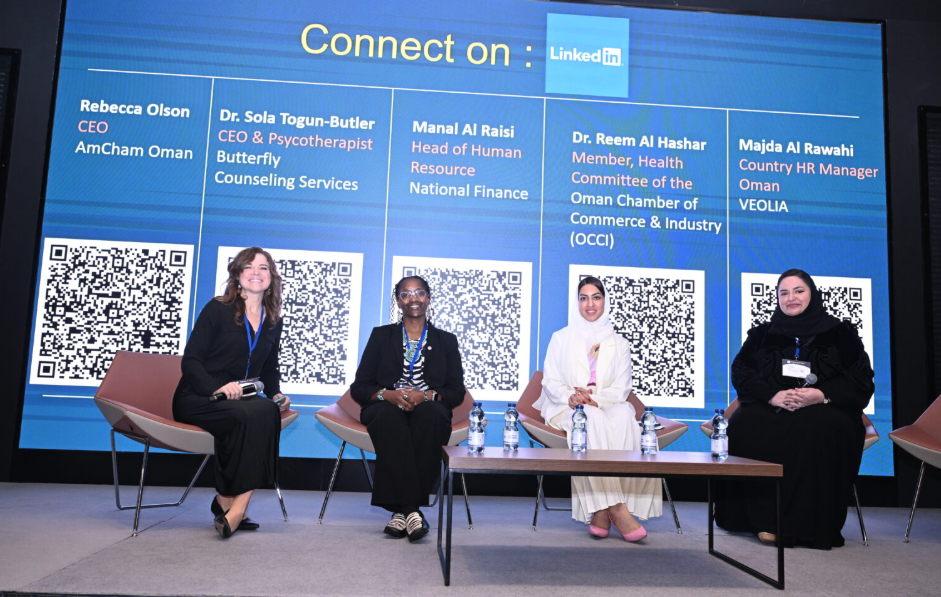
Sreya is Diversity and Inclusion (D&I) lead for Capgemini in India. Her current responsibility is to create an inclusive workplace across all business units, improve gender balance in the leadership roles, inclusion of people with abilities, LGBTQAI+, Military Veterans etc. Sreya brings over 21+ years of Operations and Human resources experience in several industries like IT-ITES, oil & gas, manufacturing heavy industries and service industry.
We are delighted to share that Sreya will be speaking in Mumbai as part of our India summit. We caught up with her to see how she’s feeling in the runup to the event.
Hi Sreya we are thrilled that you will be speaking at the Wellbeing at Work India Summit next week. As a leader based in the region, what are the main challenges you are facing when it comes to employee wellbeing and mental health?
Overcoming the stigma associated with mental health issues is one of the primary challenges organizations face. Many employees hesitate to seek help due to fear of judgment or negative consequences. To address this, Capgemini has implemented an Employee Assistance Program (EAP), a 24×7 free and confidential service that provides counselling and support to employees and their immediate families for various personal and professional concerns. Additionally, the organization has embedded ‘Mental Health Awareness’ into its manager playbook guide, ensuring that all people managers are equipped to identify signs of mental health issues and take necessary actions. Capgemini also strives to address the diverse needs of its workforce by managing stress and anxiety and providing support for specific health conditions such as menopause and menstrual wellness.
What strategies have you seen developing over the past 6 months, both internally and externally, that are moving the dial on wellbeing in the workplace?
When it comes to distinct health issues for men and women, there are notable differences. For example, men are at higher risk of heart disease at an earlier age, while women often experience different symptoms and may be underdiagnosed. Women may experience symptoms like shortness of breath, nausea, and back pain rather than chest pain. In terms of mental health, men may struggle with toxic masculinity that can hinder their willingness to seek help, whereas women may face unique challenges related to caregiving and hormonal changes. For instance, men might avoid discussing their mental health due to societal expectations, while women might experience increased stress during menopause.
By addressing these distinct health challenges and implementing comprehensive wellbeing strategies, Capgemini has seen significant progress. For example, our Women’s Health Sponsored Program includes pap smears and mammograms tests, monthly gynaecologist free check-ups, financial literacy sessions, our Menopause Sensitivity Program includes awareness, sensitization, and symptom management workshops with health experts, and Menopause Cafes encourage peer experiential learning conversations. These initiatives have been instrumental in promoting preventive health measures and fostering open conversations about women’s health. Additionally, webinars and workshops addressing topics like men’s toxic masculinity and caregiver mental health are becoming more common, helping to normalize discussions around mental health and providing employees with practical coping strategies.
Why is employee wellbeing so important to you personally?
‘One size doesn’t fit all’ is a fundamental principle guiding employee wellbeing. Organizations must adopt different approaches to effectively support individuals with unique needs and circumstances. Employee wellbeing is vital as it directly impacts productivity, engagement, and overall happiness. Personally, I believe that a supportive and inclusive work environment is essential to foster creativity and innovation. When employees feel valued and cared for, they are more likely to contribute their best efforts and ideas, driving organizational success. Prioritizing wellbeing reflects the commitment to creating a workplace where people thrive both professionally and personally. For example, Capgemini’s bereavement leave allows employees to take the necessary time to grieve and manage personal loss without the added stress of work responsibilities. This kind of support demonstrates empathy and understanding, reinforcing a culture where employee wellbeing is a top priority.
What areas do you think employers should be focused on over the next 12 months?
Employers should prioritize holistic wellbeing by creating programs that cater to diverse needs. Sensitizing employees about the importance of wellbeing and gaining their support is imperative for enabling a healthier workplace. This can be achieved by promoting open conversations about health and providing resources for stress management and personal growth. Additionally, educating people managers on employee wellbeing is essential. These programs should cover health awareness, stress management techniques, and supportive leadership practices. Managers play a key role in implementing and sustaining wellbeing initiatives, and their involvement is vital for success. Employers should cultivate a culture of empathy and respect, where employees feel safe to discuss their challenges and seeking help. These focus areas can help organizations create a more inclusive and supportive work environment.
Do you feel that investment in employee wellbeing in the region is increasing or decreasing and is that a direct reflection on HR leaders’ increasing ability to demonstrate effective returns of their strategies to leadership?
The investment in employee wellbeing is on the rise, indicating HR leaders’ growing ability to showcase the positive outcomes of these initiatives on productivity and employee satisfaction. Effective wellbeing strategies are now recognized as essential for long-term success, with HR leaders increasingly demonstrating tangible benefits such as reduced absenteeism, improved morale, and higher retention rates. By emphasizing these advantages, HR leaders can secure continued support from leadership for their initiatives.
How has your organisation been leading the way?
At Capgemini, we have been leading the way in promoting employee wellbeing through a holistic and inclusive approach. We ensure clear career paths and conduct regular career development discussions to help employees understand their growth opportunities within the company. Our mentorship programs and access to leadership trainings are designed to support employees in their career journeys and empower them to envision a future with us. We offer a variety of upskilling opportunities, including technical training, soft skills development, and industry certifications.
Capgemini is dedicated to building a workplace where employees can flourish both professionally and personally. We are at the forefront of implementing comprehensive and inclusive wellbeing programs that address physical, mental, and financial health. We demonstrate our commitment to creating an inclusive environment that supports the health and well-being of all employees through our extensive programs. By meeting diverse needs and fostering open conversations, we create a supportive environment where employees feel valued and are motivated to take charge of their wellbeing.
Sreya will be speaking in Mumbai at the Wellbeing at Work Summit India which takes place in Mumbai on 8th April and Bengaluru on 10th April. Further details on the Summit and tickets can be found here.



